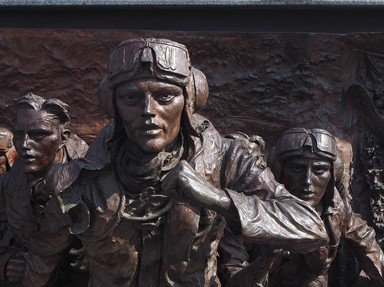Quiz Answer Key and Fun Facts
1. There was a jar beside the kitchen sink. What odds and ends were put there to avoid wasting a then scarce commodity?
2. As protection against bombing we were offered two kinds of shelter - the Anderson and the Morrison. The difference was where they were meant to be used. If you had a Morrison shelter, where would you put it?
3. I had very few friends because there were no children in my street. Why was that?
4. Many of the fighter planes that tackled the enemy bombers during the Blitz came from nearby Croydon Airport. There were two main types. One was the Hurricane. What was the other famous fighter that took part in the Battle of Britain?
5. Why did we seldom have sweets in World War II despite them being rationed?
6. All these goods were rationed in one way or another. Which were registered by the points system?
7. What did the dentist lack that made a visit to him absolutely terrifying?
8. I learnt to knit, "for the war effort". By the age of 6 I was knitting my own jumpers, but what did I knit mostly especially for the forces?
9. What did I always wear around my neck when I went out of my home?
10. Tommy Handley was a famous name during most of the war. For what was he known?
Source: Author
Toeknee448
This quiz was reviewed by FunTrivia editor
bloomsby before going online.
Any errors found in FunTrivia content are routinely corrected through our feedback system.
